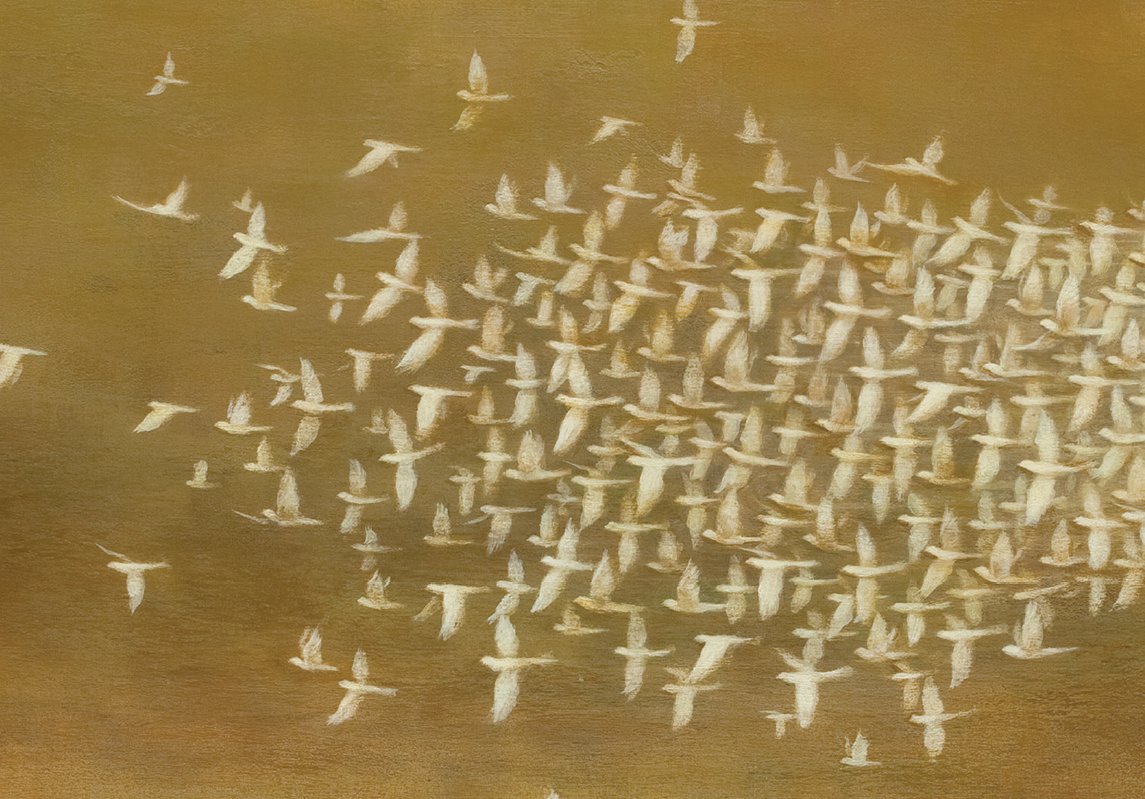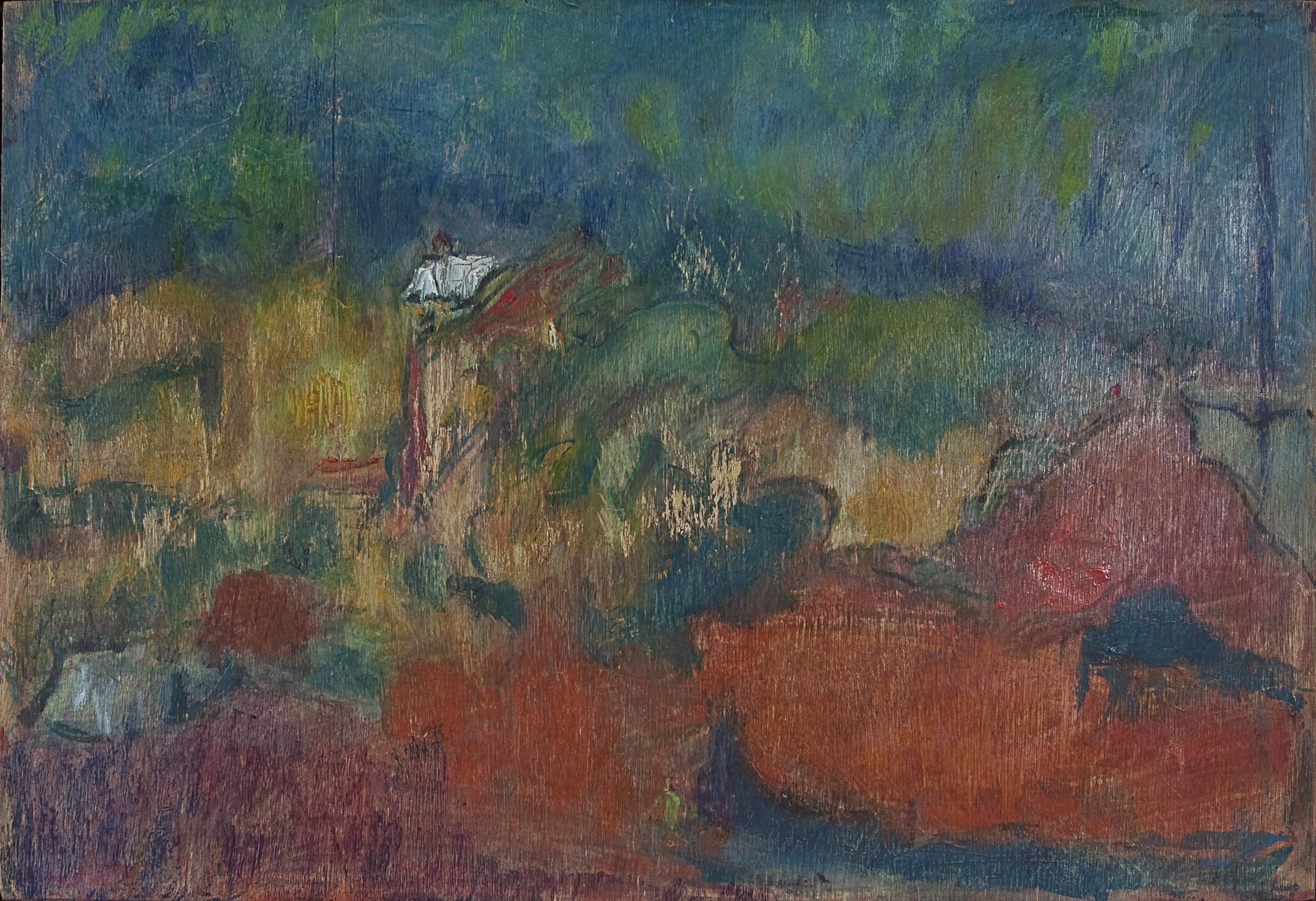
BOOKS
Anna V. Q. Ross plumbs motherhood, migration, childhood, and the cycles of violence and renewal that recur in each. These are poems of math homework and police sirens, where a fox pops out of a fairy tale to dig up the back yard, NPR News spirals the evening carpool into memories of girlhood and trauma, and a city gas leak conjures xenophobic backlash against refugees. In poems of reclamation and warning, Flutter, Kick brings us to the center of our world—a place where “in those days, we were fast and best, but didn’t know it”—with a compassion learned of anger, memory, and joy.
Flutter, Kick
Publication Date: November 8, 2022
“Anna V. Q. Ross’s finely wrought poems reveal a world where nurture is stacked against disaster, where nothing—not the children in their ‘flocks of black and yellow / school buses,’ not the fire-prone ‘lodgepole pines that have perfected leaving’—is spared a keen awareness of how an ending could come at any time. With acute attention and insight, Ross writes of stewardship and sustenance, of violence and vulnerability; her poems are unafraid to ask what can’t be answered and unapologetic in their insistence that there is no space for the tender that doesn’t also include the tough.”—Natalie Shapero, author of Popular Longing
“In this extraordinarily tender, brutally honest collection, Anna V. Q. Ross’s Flutter, Kick explores the fullness of life while harnessing poetry’s ability to examine the past. This feminist voice not only marvels and reveals, but also hums, channels, witnesses, and affirms. Ross navigates the waters of motherhood and memory, tempers regret with resoluteness, and does so with soft rhymes and language that lifts off the page. She observes small moments to discover big truths. Flutter, Kick is a fine-spun, insightful work of art that is eloquent, revelatory, and self-aware.” —January Gill O’Neil, author of Rewilding
“In Flutter, Kick, Ross focuses her sharp description, taut lyricism, and vigilant gaze at the world around her with a kind of double-attentiveness, attuned to the beauties and pleasures of everyday life, nature, and motherhood while remaining acutely aware that danger, tragedy, or loss can intrude at any moment—‘not if, but when.’ ‘Somewhere nearby / the sharp-shinned hawk is circling,’ some peril is rising up in the neighborhood or within the self, or some atrocity is being committed on the other side of the world, where ‘someone else’ is suffering. This dark knowledge is both a burden and—especially after the speaker learns to ‘give up fear’—a blessing that deepens the many moments of joy and human connection that this book offers.” —Jeffrey Harrison, author of Between Lakes and 2020 Benjamin Saltman Poetry Award Judge

Figuring
Editor’s Selection in the 2015 Frost Place Chapbook Competition
Available here: Bull City Press
“Anna Ross’s poems blaze with the terror of the next moment. Even in the heart of happiness, the unspeakable lurks. A child dies; a bullet flies from another child’s gun. Her self-portraits are our mirror shattered by beauty and the other.” —Barbara Hamby, author of Holoholo
“Figuring asks us to figure up environmental and human losses and to figure out our culpability in the ways things and people are lost. In these poems, in which the perspective is so often looking down from or looking up at the sky, we feel both the smallness and the bigness of our world and its dangers. Ross is a poet for whom counting each loss—figuring it both personally and politically—is an act of witness. Hers is a compassionate, warning voice we need to hear.” —Melissa Range, author of Horse and Rider and Scriptorium
"In most self-portraits, the maker renders in order to stay and preserve the self against transience. In Figuring, however, Anna Ross’s self-portraits urge change and undoing, which beget the continual act of remaking identity: as mother, as body, as part of nature. “You think of bodies made and unmade / within you—the ones who found breath, / the ones who didn’t know the place they’d left,” she writes. In fact, these poems seem to argue that domestic work is the act of creation and re-creation, and that the mother, like the fox leaving behind the “den where . . . blue-eyed kits / burrow themselves in sleep,” is continually “unmasked / by sun” to a sense or image of self, and then another and another." —Emilia Phillips, author of Signaletics and Embouchure

If A Storm
Winner of the 2012 Robert Dana-Anhinga Prize for Poetry
Available here: Anhinga Press and Amazon
"A masterfully written collection that reads with growing psychological complexity, If a Storm is a crescendo of poetry. Anna Ross is a strong poet of eye and ear. Her close investigation of the nature of motherhood and the motherhood of nature are compelling. Assured and unrelenting, these poems build into a singular voice that continues to echo long after the final poem." —Julianna Baggott, 2012 Robert Dana-Anhinga Prize for Poetry judge
“Stripped-down, serious, and tightly focused on durable emotions—grief at a miscarriage, affection for a partner, love for a growing child—Ross’s debut nonetheless looks all over the map: the literal map, that is, of the places she’s been, from which her poetry draws crisp scenes of the built environment (Brno, Krakow, São Paolo) and, more effectively, scenes from the natural world. Though residing in Massachusetts, Ross seems most comfortable amid the Montana wilderness and other places with great open skies and sublime waters, as when “a flock of sandhills feeding in the river meadow... clatter long, pointed bills to call their young.” —Publisher Weekly
"Lyric poetry attends to the life that goes unrecorded underneath the world's visible stories. Anna Ross's If a Storm does so with a combination of searching description (chiefly of the natural world) and a deceptive nonchalance. Ross's innovation is that she knows that such attention of mind and body now exists in the world as an anxiety, an "underneath": a privacy of thought that has become, for so many real and imagined reasons, anxiously secret. From intimate confessions of the failure of judgment, especially in the face of loss ("Instinct or pattern will blind us") to a sonnet sequence whose incantatory last poem gives the collection its nervous title ("Flight"), to moving accounts of pregnancy, travel, and other transitional states of being, If a Storm turns this tense and shareable intuition into a rich investigation of the world." —Katie Peterson, author of Life in a Field

Hawk Weather
Available from Finishing Line Press or on Amazon
"The poems in Anna Ross's Hawk Weather refresh our sensitivity to the beauty of the natural world in all its enormity and minuteness. Tirelessly attentive to its sensual particulars--as well as to their correspondence to each other and to human thought and feeling--Ross's poems are exquisitely crafted, wise, patient, affirming, and full of care. As it is "impossible // to see a flying thing / and not think of a spirit rising," so it is impossible, when reading this scrupulous, hard-won collection, not to be reminded of the wonder of there being a world to begin with--and of our responsibility to preserve it." —Timothy Donnelly, author of The Problem of the Many
In Anna Ross‘ remarkable first collection, she gives us poems “…busy/ with unfurling…,” poems busily releasing their gorgeous, dense imagery and music. From ribcage to crocus tip, from jaw-line to ridge, vivid particular moves to vivid particular; rich lines swing one to the next to the next. Here, in poems singing with the transformation only metaphor can offer, we find the grief of miscarriage endured in a world where “…even the doormat/ has birthed feathery mushrooms.” Here, Anna Ross gives us her most moving gift: transcendence of loss and grief. “Out of hardship, sweetness, an ancient/ earned fragility.” — Paulann Petersen, author of One Small Sun
Out of hardship and sweetness, writes Anna Ross, the vineyard brings forth an “ancient / earned fragility.” There is hardship in this book: the mortal, bruising facts of life and loss. There is also a delight in the senses, in the kinship with other creatures, and in the landscape one inhabits. This wonderfully crafted poetry thus arises out of a sharp-eyed, earned sense of the ephemeral in all things. Anna Ross helps us see and feel and remember that, as Wallace Stevens said, death is indeed the mother of beauty. — Fred Marchant, author of Full Moon Boat



